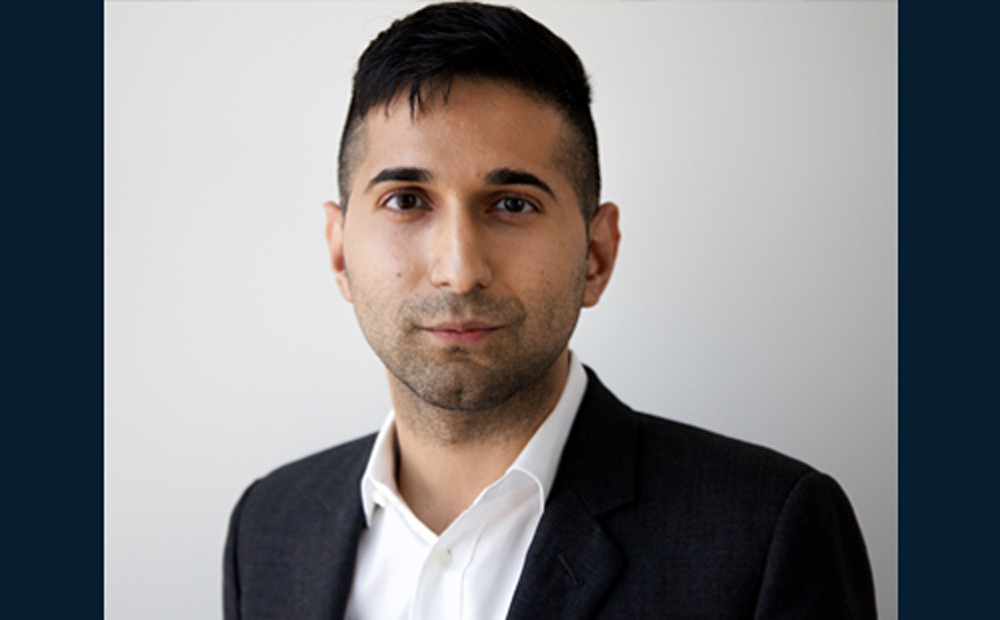Professor Yuvraj Joshi’s Research Earns Recognition From Law & Society Association

Dean’s Research Scholar Professor Yuvraj Joshi has earned the 2025 Law & Society Association (LSA) Article Prize Honorable Mention for his article Racial Time, which examines how inequality shapes people’s experiences and perceptions of time.
The LSA Article Prize, announced today, recognizes exceptional scholarship in sociolegal studies, evaluating work by scholars internationally at any career stage. This year’s prize committee praised Racial Time as an “innovative paper” whose “conceptual scaffolding will prove resonant and useful for scholars across the breadth of sociolegal studies.”
“This recognition is meaningful because it honors not just my work, but the work of generations of scholars on whose shoulders I stand, and a scholarly approach that centers marginalized voices,” Joshi said. “My research—alongside that of many brilliant colleagues—demonstrates what the legal profession stands to gain when we genuinely engage with the experiences and perspectives of those historically excluded from legal discourse.”
In Racial Time, which was published in the University of Chicago Law Review, Joshi argues that U.S. law reflects dominant interests in time—embedding them into legal standards in ways that disproportionately burden subordinated groups. Through its jurisprudence, the Supreme Court enforces unrealistic timelines for racial remedies and embraces “neutral” time standards that mask structural disadvantage, he writes.
The ideas expressed in Racial Time have been percolating in Joshi’s mind for years as he has analyzed decisions from the nation’s highest court.
“Time and again, I’ve watched the Supreme Court use ideas of time to weaken efforts toward racial equality,” Joshi said. “The Court insists that policies like affirmative action and voting rights have outlived their usefulness—that they’ve lasted ‘too long’ or will soon no longer be needed. At the same time, it routinely ignores the temporal burdens placed on marginalized communities.”
He noted that “when voting regulations result in longer wait times in Black neighborhoods or limit voting windows in ways that disproportionately affect Black voters, the Court dismisses these as mere ‘ordinary’ burdens of voting, rather than recognizing them as discriminatory barriers.”
These observations prompted Joshi to ask: Whose sense of time is being enforced?
“For communities living under structural inequality, time is not neutral. The pace of progress, the persistence of harm, the delay of justice—these are experienced very differently depending on who you are,” he said. “What would it mean for the law to acknowledge that? What would it look like for legal institutions to take seriously the temporal experiences of marginalized communities? These are the questions I explore in Racial Time—how time and inequality intersect in American law.”
Since its publication in October 2023, Racial Time has informed the work of legal scholars across fields including antitrust, policing, disability rights, family regulation, and firearms law. It is part of a broader series of articles Joshi is writing on constitutional law and equality—work that has also garnered recognition from the Association of American Law Schools and the Canadian Association of Law Teachers.
Professor Aziz Rana, the J. Donald Monan, S.J., University Professor of Law and Government at Boston College Law School, praised Joshi’s work: “In keeping with the excellence of Yuvraj’s broader scholarship, Racial Time underscores his remarkable capacity for combining deep theoretical sophistication with concrete interventions into real world problems and legal debates.”
Rana added that Joshi’s work “offers the most comprehensive and compelling account of the psychology of judicial pushback against racial reform. It also provides a tremendous guide regarding which legal and policy reforms to emphasize.”
In addition to his research scholar role, to which he was appointed in December, Joshi is an Associate Professor at Brooklyn Law School, where he teaches and writes on constitutional law and issues of equality. He is also a Faculty Affiliate at the UCLA Promise Institute for Human Rights and a Research Scholar at the UC Berkeley Miller Institute for Global Challenges and the Law.
Prior to joining Brooklyn Law School, Joshi taught at the University of British Columbia Allard School of Law. His career experience includes extensive work in human rights research and advocacy, including for Human Rights Watch and Lambda Legal Defense & Education Fund. He practiced with Linklaters in London, Amsterdam, and Frankfurt.